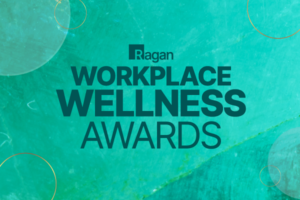Resolve to prioritize financial benefits — your employees are
January is Financial Wellness Month, so what better time to review the findings of a Betterment’s 401(k) report examining employees’ financial needs and the benefits important to them.

With so much coverage around supply chain delays, rising inflation, increased demand on the healthcare system and rising numbers of COVID-19 again, it comes to bear that consumer confidence may be shaken. But what about employee confidence, which ties to financial confidence? According to “The Impact of the Great Resignation on Benefits Needs and Expectations” report from Betterment’s 401(k) business, financial benefits are a top priority for employees above in-office perks and vacation time.
The survey, which ran in September 2021, examined 1,000 full-time employees’ understanding of financial wellness, how they would rate their own accordingly and the types of benefits they want their employer to provide with both the pandemic and Great Resignation as a backdrop. Perhaps unsurprisingly, the findings indicate that employees are still hurting financially, and 54% of workers are somewhat or significantly more stressed about their finances than they were before the pandemic.
However, 49% of respondents rated their financial wellness as stable, a figure that highlights the dual experience of the U.S. population with some weathering the pandemic well while others are struggling. Overall, 76% of respondents said the pandemic made them re-examine their financial situation.
“The last couple of years have been financially challenging for workers and business owners alike,” says Kristen Carlisle, general manager of Betterment’s 401(k) business. “Faced with new realities and shifting work environments, it’s time that employers rethink traditional perks and consider what might provide greater value to their employees.”
Prepared for an emergency
Betterment’s 401(k) business survey findings show that 66% of employees reported having an emergency fund. Of the 34% who do not have one, 81% suggested they do not have the money to build one. This topic has quite a gender gap as only 37% of women rated themselves as stable compared to 61% of men; similarly, 72% of men report having an emergency fund while only 59% of women did.
There also is a divide between generations on this, which makes sense when considering the amount of time within the workforce. Only 35% of boomers report having higher financial stress levels the past 18 months and 70% have emergency funds, versus 58% of Gen Z indicating higher stress and 47% do not have any emergency fund.
Since the start of the pandemic, 43% of respondents tapped into their emergency fund. The main reasons were to cover medical expenses (47%), home or car repairs (43%) and paying rent or bills (35%).
Demand for employer-driven support
Seventy-eight percent of employee respondents say it’s important their employer offers financial wellness benefits. According to “The Impact of the Great Resignation on Benefits Needs and Expectations report,” 83% view such benefits as a signal their employer values them and their work.
For survey respondents, the top 10 ranked financial benefits are:
- A high-quality 401(k) or other retirement plan.
- 401(k) matching program.
- Wellness stipend.
- A flexible spending account or health savings account.
- An employer-sponsored emergency fund.
- Childcare support.
- Budgeting and savings tools.
- Access to a live financial advisor.
- Student loan financial assistance or repayment program.
- An employer-sponsored college savings plan.
Communicate, communicate, communicate
It is crucial that employers who do offer financial wellness benefits communicate them effectively — something 78% of respondents expressed. While 78% of employees report taking advantage of most or all financial benefits offered by their employer, the remaining 23% use a small amount or none of the benefits. Of those who do not take full advantage of the financial wellness benefits, 36% point to not knowing what benefits are available.
While 34% of employee respondents indicate their employer began offering new financial wellness benefits in 2021, 74% would be likely to leave their current job for employers offering better financial benefits. This is especially true for millennials (79%) and Gen Z (84%).
“What’s helpful is that great financial wellness benefits don’t need to break the bank, and can pay dividends towards employee retention and talent acquisition,” Carlisle says. “Moreover, taking the time to help your employees understand how to take advantage of the benefits that you’re currently offering can go a long way towards boosting happiness and morale.”
Recommended reading: Inclusive Wellness Series: How to create an inclusive financial wellness program.
COMMENT
Ragan.com Daily Headlines
RECOMMENDED READING
Tags: 401(k), benefits, Betterment 401(k) business, emergency fund, financial wellness, financial wellness benefits






